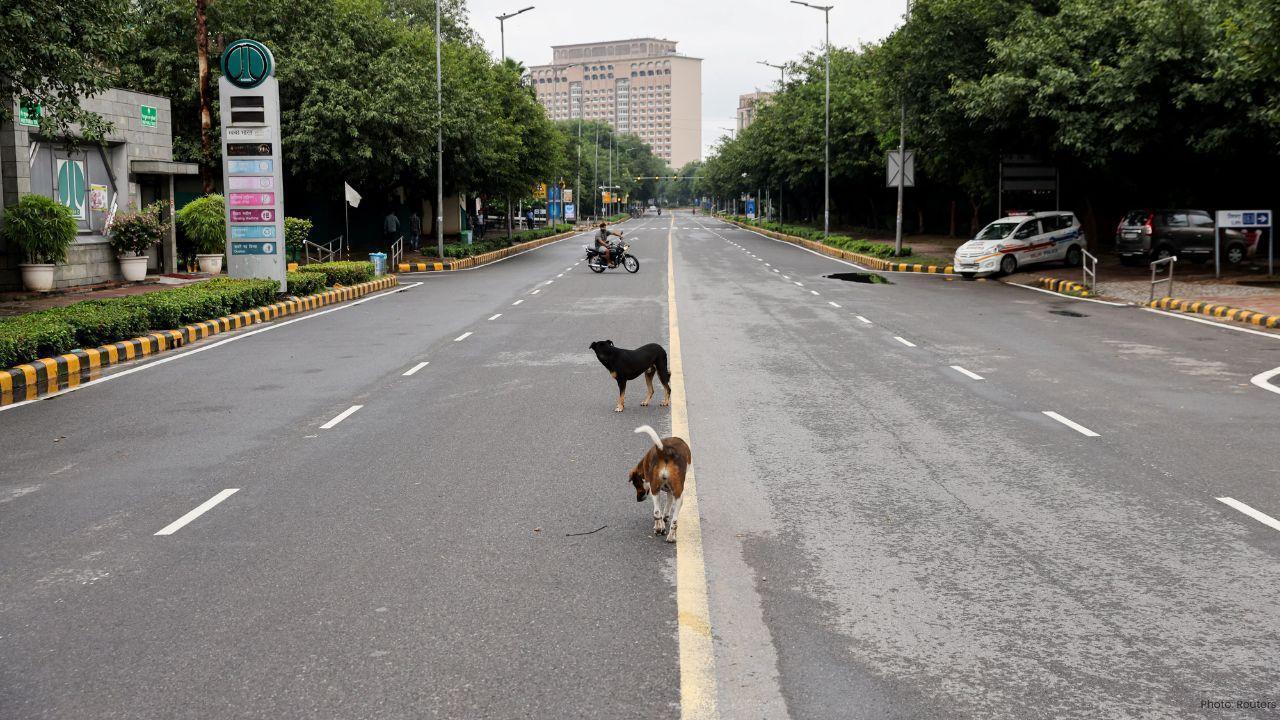You have not yet added any article to your bookmarks!

Join 10k+ people to get notified about new posts, news and tips.
Do not worry we don't spam!

Post by : Meena Ariff
India’s Supreme Court has issued a strong order to remove thousands of stray dogs from the streets of New Delhi. The court’s decision aims to protect the public, especially children, from increasing dog bite cases and to reduce the risk of rabies in the capital city.
What Did the Court Order?
On Monday, the Supreme Court instructed the local authorities in New Delhi to start capturing 5,000 stray dogs from areas that are considered “high-risk” for attacks. The court ordered that these dogs should be sterilized and moved to animal shelters, where they will be cared for. These shelters must have proper staff and security measures, including CCTV cameras, to ensure the animals are looked after safely.
The court gave the authorities a deadline of six to eight weeks to complete this process. It also directed the creation of a special animal helpline within one week to report dog bite incidents quickly.
Why 5,000 Dogs?
It is not clear why the court chose the number 5,000 as the initial target. Estimates suggest that the total number of stray dogs in New Delhi could be anywhere between 500,000 and one million. The order is focused on the most dangerous areas first, with plans to remove more dogs in the future.
Rising Dog Bite Cases Spark Concern
One of the main reasons for the court’s order is the sharp rise in dog bite cases in the city. Hospital records show that around 2,000 people suffer dog bites every day in New Delhi. Many of these victims are young children.
The court expressed serious concern about the safety of infants and young children, saying it was acting to protect the public interest. It warned that children should never fall victim to stray dogs.
Legal Consequences for Hindering Removal
The court also warned individuals or groups that try to stop authorities from capturing stray dogs. Anyone interfering with the process will face strict legal action.
Additionally, the court made it clear that the captured dogs should not be released back onto the streets, residential areas, or public places after sterilization.
Opposition From Animal Activists
Before this ruling, animal lovers and activists opposed the court’s involvement in the stray dog problem. They raised concerns about the safety and welfare of the dogs.
However, the court strongly criticized these activists, asking if they could bring back the people who had died from rabies due to dog bites.
Rabies is a deadly disease caused by a virus spread through animal bites. If not treated quickly, it almost always leads to death.
Government’s Response
Soon after the court’s order, Delhi’s Cabinet Minister Kapil Mishra announced that the government would begin capturing and sheltering the stray dogs. He called the court’s order an important step to free the city from the fear of rabies and stray animals.
Minister Mishra also said that special attention would be given to the welfare of the stray dogs in the shelters.
What Is Rabies and Why Is It Dangerous?
Rabies is a viral disease that attacks the central nervous system. It is usually spread through the bite of an infected animal, especially a dog.
Once symptoms start, rabies cannot be cured. It causes severe illness and almost always leads to death. Because of this, controlling stray dog populations and preventing dog bites is very important for public health.
Challenges in Managing Stray Dogs
Stray dogs are a common sight in New Delhi and many other Indian cities. They live on the streets, often scavenging for food.
Controlling stray dog populations is difficult because of the large numbers and the lack of proper shelters. The city has struggled with this issue for many years.
The Supreme Court’s order is seen as a major step in managing the problem with a clear plan and timeline.
What Will Happen Next?
Local authorities will now start the process of capturing stray dogs from areas with many dog bite reports. Dogs will be taken to shelters, sterilized to prevent them from having puppies, and cared for.
The new animal helpline will make it easier for people to report dog bite cases quickly, allowing faster medical help and better tracking of problem areas.
The government also plans to improve the conditions in shelters and ensure animals receive proper care.
Why Is This Important for the Public?
By reducing the number of stray dogs on the streets, the government hopes to lower dog bite incidents and the spread of rabies.
India’s Supreme Court has ordered New Delhi to capture and shelter 5,000 stray dogs within two months to reduce dog bites and rabies risks. The order requires sterilization and proper care of the dogs in secure shelters. A new animal helpline will be created to report bite cases. Despite opposition from animal activists, the court emphasized public safety. The Delhi government has welcomed the order and promised to focus on both people’s safety and animal welfare.










Skiers Rescue Man Buried Under Snow at California Resort
A dramatic rescue at Palisades Tahoe shows two skiers saving a man suffocating under deep snow durin

Sri Lanka Ex-Intel Chief Arrested Over Easter Attacks
Former SIS Chief Suresh Sallay arrested by CID in connection with the 2019 Easter Sunday bombings th

Japan Reports Spike in Measles Cases Authorities Issue Alert
Japan confirms 43 measles cases in early 2026, prompting health authorities to warn potential contac

Korea US Clash Over West Sea Drill Communication
Conflicting accounts emerge on prior notice briefing, and apology during Feb 18-19 US air exercise i

Richard Liu launches $690M eco-yacht brand Sea Expandary
JD.com founder Richard Liu invests $690M in Sea Expandary aiming to produce affordable green yachts

China imposes export curbs on 40 Japanese firms over military ties
Beijing restricts dual-use exports to Japanese companies, citing remilitarization concerns, promptin